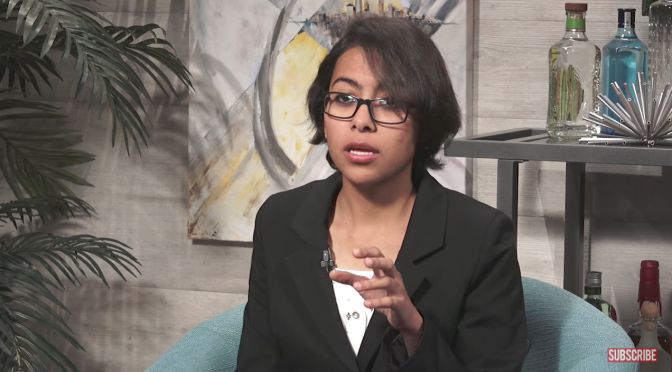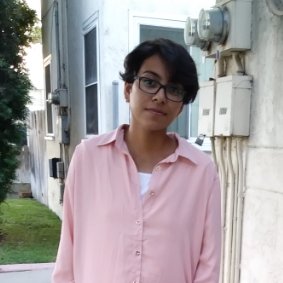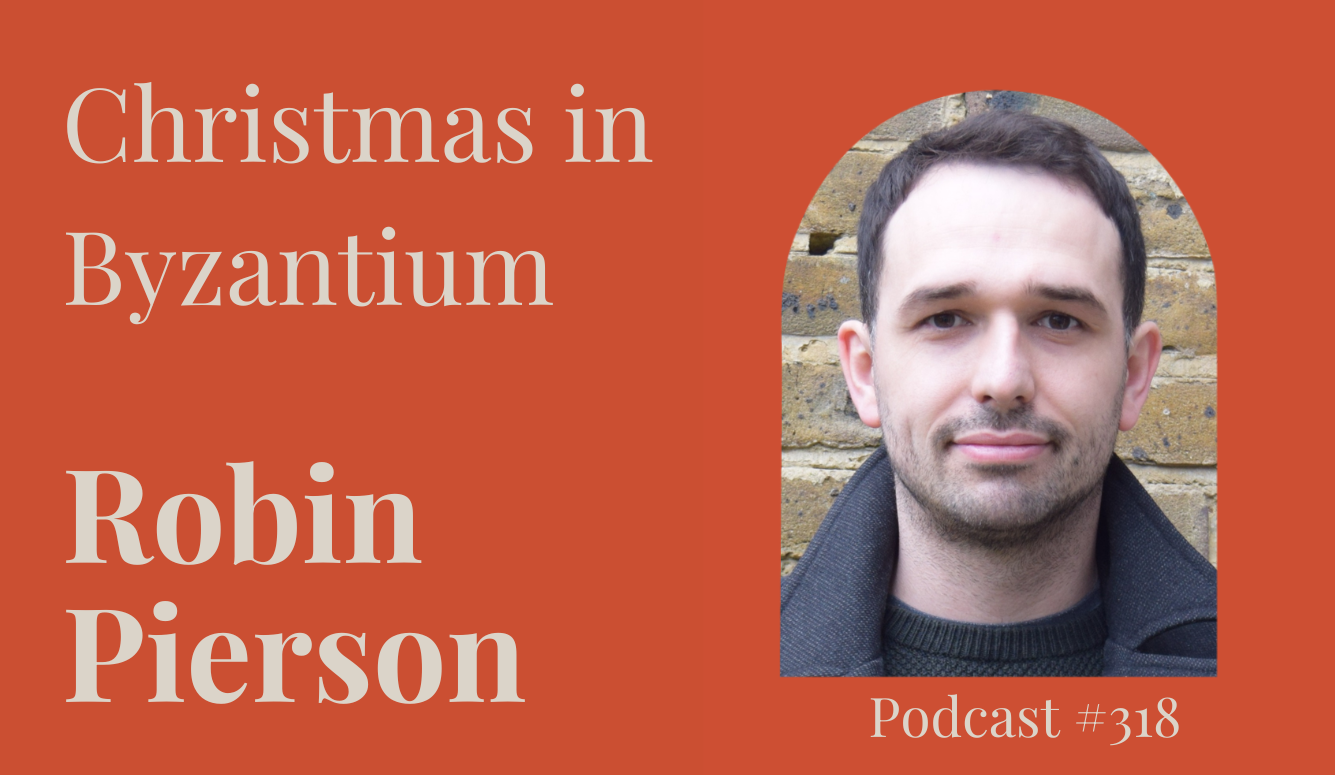Human Rights
Speaking Out About Islam – Lubna Ahmed, Rebel With a Cause
What is he? A man or a woman? Why should women wear headscarves, that is, the hijab? I ended up asking, Was the Prophet Muhammad real?”

Her voice broke with anguish and remembered fear at times as she told me her story. She is only twenty-six years old, yet the courage and conviction she has shown befit a war hero with years of battlefield experience. She has, in fact, found her life threatened, and on a battlefield of sorts – an ideological one on which she has been defending her rights, and specifically, her rights as a woman. In 2015, she decided that she could remain silent no longer, and came out internationally as an atheist on The Rubin Report (Dave Rubin’s popular Internet talk show) in a deeply Islamic society, knowing the mortal risks awaiting her, and had to flee her homeland. But even in her new life in California, she has to live concerned for her safety, as do all those ex-Muslims – and especially women – who publicly denounce Islam. Yet she remains undaunted.
Her name is Lubna Ahmed and she hails originally from Baghdad. She is an engineer by education, a truth-telling rebel by character and vocation.
I spoke with Ahmed one day recently by Skype. What struck me immediately was the contrast between the vulnerability in her voice and the fierceness of her declarations about the faith in which she grew up immersed, but never shared. She offered no pretense of objectivity, but straightaway told me she “hated” Islam, and forcefully stated why. Richard Dawkins, Sam Harris, Ayaan Hirsi Ali, and the late Christopher Hitchens – all known for their hard-hitting, fact-based denunciations of Islam (and other religions)– inspired her, through both their anti-theistic writings and their videos, which she watched on Youtube. Her own two online chats with Dave Rubin – viewable, naturally, everywhere, including Iraq – earned her death threats and episodes of physical assault in Baghdad that finally prompted her to flee for the West, which she did with the aid of Richard Dawkins, whose eponymous foundation collaborated on her rescue with the Center for Inquiry. She started out inspired by Dawkins; he ended up saving her life.
Ahmed told me that her mother (also highly educated) was an atheist, though her father was not. I asked Ahmed how she came to her own godlessness.

“I started from an early age,” she replied, “when I was fourteen or fifteen, to ask questions in the classroom when we had lessons about religion and the Quran. I was asking questions about God. What is he? A man or a woman? Why should women wear headscarves, that is, the hijab? I ended up asking, Was the Prophet Muhammad real?”
In a postwar Iraq dominated by the Islamic Republic of Iran, such questions got her kicked out of schools and increasingly estranged her from her community, leaving her a friendless pariah.
“I didn’t have any friends to talk to. By the time I was eighteen I was writing articles questioning God and certain verses [in the Quran] and even Muhammad, and publishing them on Facebook and in the magazine Al-Mutanabbi. I continued doing that, even during my college years. For that I was threatened, hit, attacked, slapped, and harassed.”
But it was her appearances on The Rubin Report that led to credible death threats from local Shiite groups, forcing her to break with her old life, go into hiding, and, eventually, flee Baghdad in June 2017 for the United States. She now lives in California and hopes to pursue a master’s in chemical engineering.
I asked what motivated her to speak out against Islam to Dave Rubin and take such sadly predictable risks.
“I feel it’s my duty to talk,” she responded matter-of-factly. “No one in my country is talking about such things. . . . I was threatened and harassed all the time for not doing anything, just for speaking my mind, my thoughts. I ended up hiding to save my life, just so I can talk more. I began to think I would not make it, I’d be killed. But if we keep hiding our identities, then nothing will be accomplished.”
This took a lot of courage, I replied. “Oh, I just believed in myself and what I was doing, and I just wanted to talk,” she said. “I was tired of being harassed just for being an atheist. I was tired of being a woman in my country without the right to be a human being. I was tired of seeing children taught to be slaves. So I decided to go public and do the interview” with Rubin.
Her voice broke and she began sobbing quietly. After a few moments she composed herself and continued.
“I did the interview and got to speak about my thoughts. After that, I received death threats to shed my blood, that I’m an infidel. I had to leave my studies and leave everything and go into hiding. In hiding I couldn’t talk, I lost my own voice.” Just recalling that made her sob again – being able to speak her mind was that important to her. A long silence followed. The trauma, clearly, was still raw.

But soon she spoke again. In hiding, moving from one safe place to another, “I ended up wearing a hijab as a disguise. I ended up doing what I fought all my life against, just to save my life, to be able to escape and tell my story.”
The tension never let up in Iraq, lasting until the moment when she and her mother were about to board the plane for the United States.
“At the airport I was stopped with my mom for half an hour.” The officials puzzled over her American visa – a type they had never seen before. “I thought this is the end, I’m caught!”
But they relented and let them proceed with their journey.
“Now I can live my life,” she told me, sounding relieved.
I asked her to explain her view of Islam and why she opposed it so strongly.
“Islam is not a religion. Islam is a big lie … It’s a political ideology and its goal is to convert the whole world.”
If such words sound over the top, keep in mind that she was referring not to the behavior of Muslims, but to the tenets of (mainstream) Islam. The message of the Quran purports to apply to all humanity. Hence, Islam’s traditional division of the world into Dar al-Islam (the “Abode of Islam,” or Muslim lands where peace rules) and Dar al-Harb (the “Abode of War,” where Muslims must fight to spread their religion). The Quran pronounces man’s purpose on earth the worshipping of God and the spreading of His word, and encourages jihad and martyrdom, with guaranteed entry into paradise as the reward for the latter. Our transitory, temporal life, thus, serves as only a prelude to the Day of Judgment and our everlasting fate after death. If such assertions – universal in their applicability, yet advanced without evidence – do not constitute epistemological darkness, what does?
Most Muslims are not, of course, waging violent jihad in the West. Ahmed acknowledged this, with a caveat:
“They are acting peacefully. Why? Because they are in small groups. Once they have large numbers, you will get to see their true face. They won’t deal with you in a peaceful way, they will not respect you. They will force you to convert. Islam is not a peaceful religion. No.”

Here Ahmed may have overstated things, but not by much. Apologists for Islam often contend that Muslim empires (notably, the Ottoman Empire) treated their Christian and Jewish minorities better than, say, Western countries did their Jewish populations. Muslims have traditionally regarded Jews and Christians as fellow Ahl al-Kitab (“People of the Book,” or followers of the Old and New Testament, the recognized precursors of the Quran) and allowed them to practice their faiths, all the while submitting them to humiliating, second-class citizenship as dhimmis. Members of non-Abrahamic faiths (Hinduism, Buddhism) merited no such “respect.”
Ahmed told me she stood strongly for freedom of religion, with, again, a crucial caveat:
“You can believe in anything you want. But you don’t have to force it and kill others to believe in what you believe. You can be a good Muslim, but you don’t have to force others to follow you.”
“Islam” means “submission” – to the will of God. The religion’s very name, thus, evokes conflict, since not all will submit willingly. It’s no accident that a line from the Quran famously quoted by (ignorant or deceptive) apologists for Islam – “Let there be no compulsion in religion” (Surah al-Baqarah 256) – precedes a warning that eternal hellfire awaits nonbelievers. If there’s no “compulsion,” there is an implicit instigation to revile those who refuse the Almighty Lord’s word and destine themselves for hell, the supernatural antipode of paradise and all that is good and godly.
During our talk Ahmed repeatedly returned to the misogyny of Islam, and made it clear that this is what most angered her about the faith.
“In my country I saw a lot of women, a lot of children, treated in a very bad way because of that religion. Look at what happened in Mosul and what ISIS did there. ISIS reflects the true identity of Islam. Islam treats women as trash, as, I’m sorry, not even animals. Women are just objects in Islamic countries, in Islam.”
One who hopes to argue with Ahmed here will find that the faith denies women rights to a degree no enlightened observer could justify. It values their testimony in court as half that of a man; sanctions the barbarous savagery of female genital mutilation; deprives women of half their inheritance in favor of male heirs; demands that they submit to their husbands (even abusive husbands, whom they may be compelled to share with as many as three other wives); and, as mentioned above, allows men to seize them as sex slaves in jihad. Backed up by the Hadith, the Quran devotes no small number of surahs to condoning slavery, including sex-slavery.
In view of all that, it should come as no surprise that the World Economic Forum has consistently found that nineteen of the twenty worst countries for women on earth are Muslim-majority. Regarding personal freedoms in general, Muslim countries have, year after year, ranked overwhelmingly as “not free.”
And then comes the matter of veiling. By chance we happened to speak on “World Hijab Day” – a vile slap in the face of the brave women of Iran protesting against the Islamic regime for the freedom not to wear it, yet, out of mistaken notions of solidarity, celebrated in the West by at least some morally oblivious, regressive leftist simpletons. It was not hard to imagine what Ahmed thought of the Islamic headscarf, yet I asked.
“Islam wants all women to wear the hijab – it’s a sign that women are slaves, not human beings. Whether you’re eight years old or an adult woman, you don’t have the right to choose for yourself. Islam has to control you [if you’re a female]. Men should control your whole life as a woman. . . . Islam was created by men to control women, to be slaves, to use and abuse them, sexually, physically, mentally, and treat them like trash, as if they were nothing.”
She paused and took a deep breath.
“This is what drove me to think for myself, to think for women. Even in my country, all these women wear headscarves and pretend to fight for women’s rights. No. If you want fight for women, first you have to take off your headscarf, because headscarves are signs of submission, of saying you aren’t worth anything. Even an eight-year-old [male] child can lead you and decide for you, a woman. This is happening in my country.
“Women’s organizations are trying to spread the idea of wearing the hijab. That if you wear the hijab it means you’re a good woman. But not wearing the hijab means you’re not a good woman, you’re an infidel. In the Quran it says you have to wear the hijab, but also wide clothes that don’t show your figure.” (In fact, the Quran ordains modest dress for women, but the Hadith, Sharia, and Islamic scholars come down in favor of covering up completely.) “But generally what [Muslim] women do now in the Middle East or even the U.S. and European countries is wear tight jeans. This doesn’t sit well with what the Quran says. But women were created to have their hair out, just like men; you just show it. It’s natural.”
Ahmed also decried what she called the corruption, greed, and the desire for power motivating so many to profess Islam, even while behaving in un-Islamic ways. What about Muslim women in the West who at least declare that they have donned the headscarf of their own volition?
“Women who wear the hijab in Western countries are not wearing it because of their religion, no! It’s a political sign. It’s a way for Muslim women to say to other women, ‘see, we have culture, civilization.’ But the hijab [does not represent] a culture, especially in Middle Eastern countries, to be proud of. In California and in Western countries, it’s a political sign for women to wear and say, we are better than you, better than women who don’t wear headscarves. We are better than [uncovered] American women, for example, or European women.”

I asked Ahmed what she thought of posters, popularized during anti-Trump marches following Inauguration Day in 2017, that displayed the image of a woman wearing a hijab made from an American flag. She dismissed the question: “Headscarves are a sign of submission, a sign of slavery, you cannot defend that! You cannot!”
Was it possible to reform Islam, I asked. No, she replied: the putative inerrancy of the Quran rules that out.
“You cannot reform an ideology like Islam. [The Quran] is written by God.” (Muslims regard the Quran as the literal word of God, which the Archangel Gabriel revealed to the illiterate Prophet Muhammad.) “But it’s not actually written by God, it’s written by human beings. If you are trying to talk about reformation, you are disagreeing with what God says in that book. If God says something in the book, you have to follow it.”
Ahmed had no tolerance for those who have pronounced criticism of Islam “racism” and give a free pass to Islam-inspired violations of human rights, especially in Western countries.
“Leftists,” she said, “don’t know the truth about Islam. Muslims are not attacked in [Western] countries.”
In fact, they are, if only rarely; being Jewish or Black in the United States, at least, is far more dangerous, according to the FBI’s statistics on hate crimes. Some of the most publicized hate crimes against Muslims have turned out to be hoaxes and fabrications.
Yet Ahmed made a broader point.
“I’ve never seen a Christian person or a Jewish guy killing others for religion. I don’t say all Muslims are doing this; there are peaceful Muslims who just practice their religion between themselves.”
For Ahmed, it all boils down to speaking honestly about Islam: “leftists have to tell the truth [about Islam]. If they don’t, they are encouraging the tribalism, the slavery, the darkness, the death in my country, and in their own country. They are encouraging theocracies to be stronger. That will come back to get you, and that’s what is happening in the United States and Britain and France, where Islam is growing…so the left should stop its political correctness.” On that note, she added that, “The left is lying, they don’t say their true thoughts. They just want to be accepted. They know the truth, but they don’t speak. The left is driving a lot of people to join the right wing, because the right wing gives you the platform to talk, the chance to criticize Islam.”
The scourge of anti-egalitarian identity politics and the stultifying influence of postmodernism have disarmed a good number of people on the left, rendering them incapable of rational thought or discourse when it comes to Islam. From such folk we may exclude at least some journalists, PR agents, and lawyers who profit materially from the supposed travails of Muslims in the west. They know better, but err on the side of those with the deep pockets to pay their fees and, of course, a formidable record of using violence against critics. (Better safe – and rich – than sorry!) Ahmed told me she understood this: “This whole thing about the left . . . . It’s more related to corruption and financial things.”
The United States’ Muslim population is growing by about a hundred thousand a year, and is set to double by 2050. I asked what Ahmed felt about Muslims in her new homeland.
“I’m afraid,” she answered. “I have a phobia from what I went through. I was told it’s not safe even here [in the United States] to criticise Islam.” Her voice livened up. “But for me, I’ve done that even in my country! Why should I always feel afraid? I will do that till my last . . . I believe it’s my duty and your duty and the duty of people around the world to put Islam on the table and talk about it. But people are afraid of Islam, of the word Islam. I don’t want to be attacked, but this is the consequence of speaking out.”
All in all, Ahmed’s message essentially coincides with what true progressives and lovers of liberty of all political stripes have been saying since the dawn of the Enlightenment. According to her, “Religions are against human nature. As humans, we cannot follow a book, follow orders. We were created to love and hate and be selfish.”
As she becomes better known, Ahmed will doubtless find her views on Islam widely reviled by regressive leftist turncoats and terminally confused liberals as “hate speech” helpful to the “Trump narrative,” as stirring up “Islamophobia”. But she should take pride in their animus as confirmation of the success of her truth-telling mission.
She has found freedom and is willing to defend it and speak out to help others achieve it.
There is no more laudable cause.






